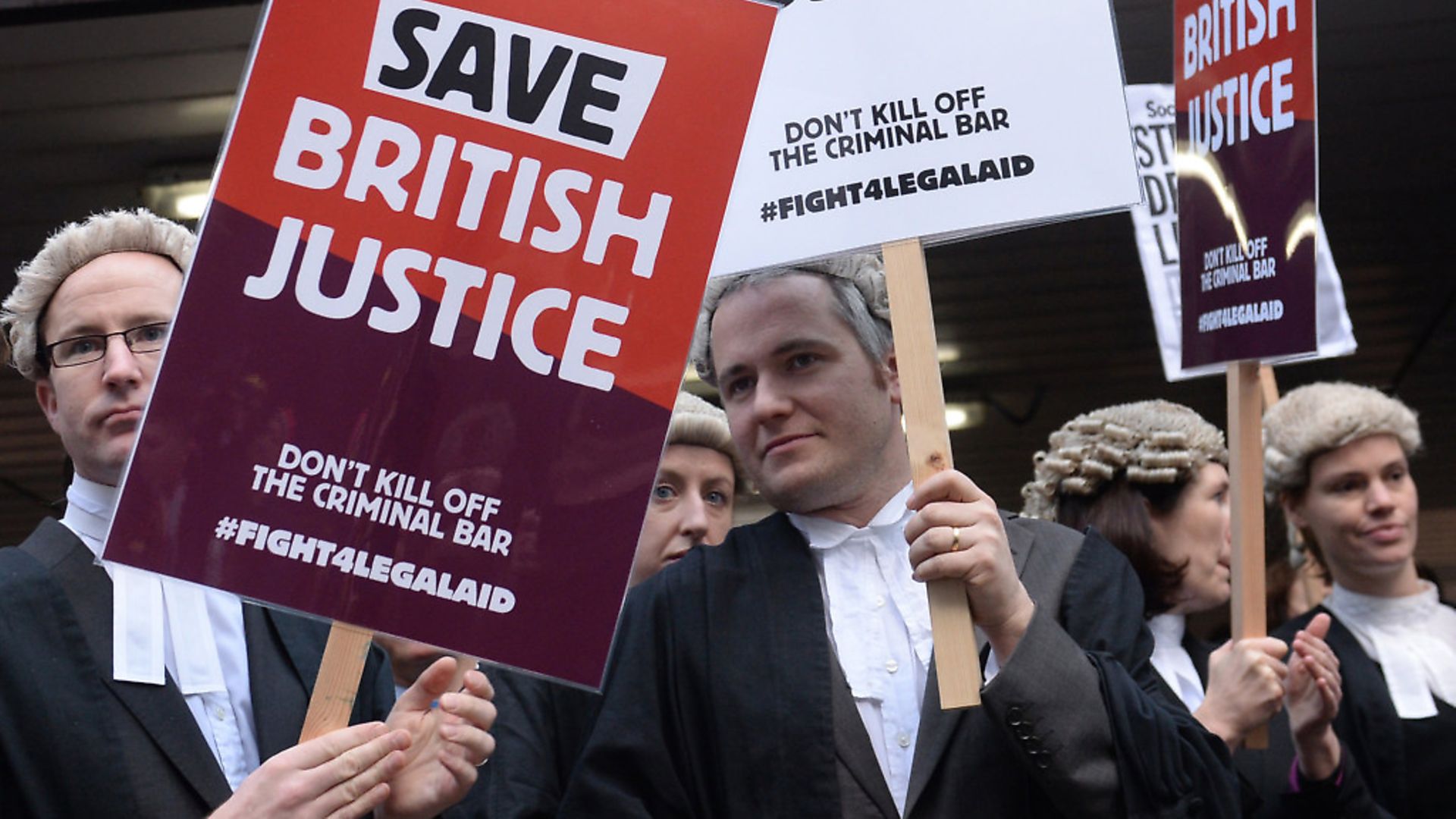
The New European columnist CAROLINE CRIADO PEREZ on a scandal in the legal system that is allowing domestic abusers to torment their victims.
Her abuser interrogated her in the witness box for three hours. He had raped and beaten her for six years. The trial was just his final flourish, overseen by bland-faced court officials, who allowed it to go on. Minute after minute, hour after hour, he carried on his legally-sanctioned abuse, with no legal representative stepping in on behalf of his victim to stop him. This is the reality of courts in Britain today. This is the human face of legal aid cuts.
It wasn’t meant to be this way. Although the 2012 Legal Aid, Sentencing and Punishment of Offenders Act (LASPO) more or less abolished legal aid in the civil courts, victims of domestic violence who ended up in the system were still meant to be eligible for legal aid. And, technically, they are.
It’s just that the regulations for eligibility seem to have been drawn up by someone with no idea of what domestic violence actually is. The result is that last year 6,000 domestic violence victims – the vast majority of whom are women – were denied free legal representation in civil cases.
To start with, a woman has to prove she is a victim. Fair enough, you may think. But the ‘proof’ required is unreasonably restrictive. Many of the items demanded, including things like a police or doctor’s letter, can be hard to get hold of (74% of women told legal charity Rights of Women they had no idea how to get them) and incur fees that many cannot afford to pay. And although abusers often hound their victims for decades, it doesn’t take long before your evidence is deemed ‘out of date’. To be eligible for legal aid, the criteria originally required that the supporting evidence had to be from within the last 24 months. This time limit was ruled unlawful by the Court of Appeal which recommended scrapping it. The government merely extended it to five years. Small wonder then, that in 2014 Rights of Women found that 43% of victims of domestic violence were unable to obtain the required evidence.
Even if a woman manages to produce in-date material, she may still be denied legal aid if she owns a home. Classing a home as ‘disposable capital’ is illogical enough when it comes to an ordinary civil case – as the 2017 Labour-commissioned Bach Report points out, there is nothing disposable about a person’s home – but expecting a victim of domestic violence to have access to capital locked in property she jointly owns with her abuser is particularly absurd. And so women just give up: according to Rights of Women 53% end up not pursuing justice at all. One woman told the charity that she stayed with her abuser hoping that ‘things would get better’. Other women represent themselves – and 24% of them end up being cross examined by their abusers, such as in the recent case, highlighted above.
In criminal cases, legal aid does still exist, but since the introduction of LASPO the fees have been cut by up to 40% in real terms. One criminal barrister worked out her magistrates court earnings at £2.40 an hour – well below the minimum wage. Chambers have closed around the country, leaving many with little access to justice. So when the government announced its latest restructuring of fees in April this year, criminal barristers did something they’ve never done before: they effectively went on strike by refusing to take on new legal aid cases.
The extreme tactic seems to have worked. The government has offered an extra £15 million for criminal legal aid (£8 million for fraud, drug and child sexual abuse cases, and £4.5 million for junior barristers), which this week, the criminal bar narrowly voted to accept. Angela Rafferty QC, chair of the Criminal Bar Association, called it ‘a breakthrough’.
No such breakthrough is on the horizon for the civil bar. Here, there are no legal aid cases for lawyers to refuse to take. The inhumane practice of allowing abusers to cross-examine their victims at least was set to be stopped if the Courts and Prisons Bill had passed in 2017, but thanks to Theresa May’s Brexit-induced act of self-harm, otherwise known as the general election, that’s been scrapped.
The replacement bill, currently going through parliament, addresses such pressing issues as changing the title of ‘Chief Bankruptcy Registrar to Chief Insolvency and Companies Court Judge’, but includes nothing about stopping abusers tormenting their victims in court.And Brexit just keeps putting up roadblocks. The long-delayed Domestic Abuse Bill has become something of a dumping ground for women’s rights legislation, including repealing section 58 of the 1861 Offences Against the Person Act (the section that makes abortion illegal in the UK), and making it illegal for abusers to cross-examine their victims. But, explains Liz Saville Roberts, Plaid Cymru MP for Dwyfor Meirionnydd: ‘Brexit legislation is holding up all substantial or controversial domestic legislation.’ Even once we’ve left the EU, ‘we’ll go straight into trades and agriculture,’ she points out. And so as we negotiate trade deals that leave us worse off than we were before, women will continue to suffer. And, apparently, no-one will do anything about it.










